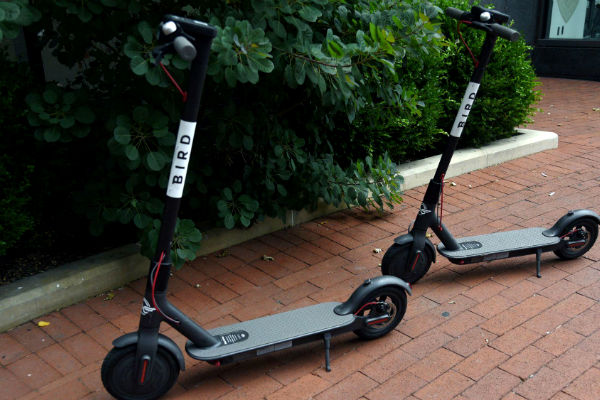 Many companies that produce e-scooters are quick to point to the environmental benefits of using them for transportation, but a recent study suggests that these vehicles aren’t quite as “green” as many would believe.
Many companies that produce e-scooters are quick to point to the environmental benefits of using them for transportation, but a recent study suggests that these vehicles aren’t quite as “green” as many would believe.
While still better for the environment than traditional vehicles when it comes to emissions, a recent study conducted by researchers from North Carolina State University suggests that there are better transportation options out there.
“E-scooter companies tout themselves as having little or no carbon footprint, which is a bold statement,” noted corresponding study author Jeremiah Johnson.
Manufacturing and distribution
Based on their findings, the researchers admit that shared e-scooters do produce fewer emissions than other, larger standard vehicles. However, the environmental cost of manufacturing and distributing these devices can be problematic.
“We found that the environmental impact from the electricity used to charge the e-scooters is fairly small — about 5% of its overall impact,” Johnson said. “The real impact comes largely from two areas: using other vehicles to collect and redistribute the scooters; and emissions related to producing the materials and components that go into each scooter.”
The researchers compared e-scooters to cars, buses, electric mopeds, and bicycles to see how each fared when it came to different measures of pollution. They found that each type of vehicle had a “similar” outcome for each measure.
Takeaways
While the findings were fairly similar, the researchers did note some differences between the four vehicle types. Specifically, they said that using a bicycle or electric bicycle was better for the environment than shared e-scooters, but only in certain circumstances.
“Biking — even with an electric bike — is almost always more environmentally friendly than using a shared e-scooter. The sole possible exception is for people who use pay-to-ride bike-share programs. Those companies use cars and trucks to redistribute the bicycles in their service area, which can sometimes make them less environmentally friendly than using an e-scooter,” said Johnson.
The researchers say that additional measures taken by local and state authorities could further reduce the impact of e-scooters and make them more environmentally friendly. That could be important as cities across the U.S. begin to increasingly embrace e-scooters as a mode of transportation.
“Allowing — or encouraging — companies to collect scooters only when they hit a battery depletion threshold would reduce a scooter’s impact, because you wouldn’t be collecting scooters that don’t need re-charging,” Johnson said.
The full study has been published in Environmental Research Letters.
Editor’s note: We could not find out before this posting, but we wondered if tests by cities before these vehicles released to the public are tested for their effect on the environment?
Become a Harlem Insider!
By submitting this form, you are consenting to receive marketing emails from: Harlem World Magazine, 2521 1/2 west 42nd street, Los Angeles, CA, 90008, https://www.harlemworldmagazine.com. You can revoke your consent to receive emails at any time by using the SafeUnsubscribe® link, found at the bottom of every email. Emails are serviced by Constant Contact








